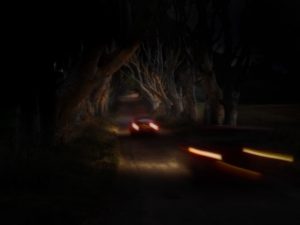Gorilla Trekking Uganda Tours
Trekking trips with gorillas provide a unique wildlife experience that supports conservation efforts while letting tourists see these amazing animals in their natural environment. The main facets of gorilla trekking will be covered in this blog, including well-known locations, what to anticipate, and the significance of ethical travel. Gorilla Trekking Uganda Tours. One of only three East African nations, Uganda offers wildlife fans the once-in-a-lifetime chance to walk in pursuit of an endangered mountain gorilla family in their natural habitat. Rwanda and the Democratic Republic of the Congo are the other two nations.
Does Ugandan Gorilla Trekking Have Ethics?
In general, gorilla trekking in Uganda is seen as morally acceptable. It still depends on how it’s run and the procedures that tour companies and park officials follow, just like any other wildlife tourist activity. Regarding the moral implications of gorilla trekking in Uganda, keep the following factors in mind:
Conservation Efforts
Gorilla Population Recovery: A key component of the conservation initiatives that have contributed to the growth of the mountain gorilla population is Uganda’s gorilla trekking initiatives. The money from trekking permits is intended to preserve the gorillas and their habitats through restricted tourism. Because tourism generates cash that directly supports conservation efforts, both Rwanda and Uganda have achieved success in growing their gorilla populations.
About half of the world’s surviving mountain gorilla population can be found in the Bwindi Impenetrable Forest, a UNESCO World Heritage site. The trekking fees go straight toward keeping this significant protected area maintained.
Regulation and Conscientious Travel
Tight Rules: Strict regulations are enforced by Uganda’s wildlife authority to guarantee the gorillas’ safety and welfare. These include a cap of eight trekkers each group. And a one-hour limit on the amount of time spent with the gorillas. The gorillas experience less stress as a result.
Trekkers must keep a safe distance (at least 7 meters or 21 feet) from gorillas in order to prevent the spread of diseases, particularly respiratory infections, which can be fatal to the primates.
No Flash Photography
Trekkers are advised to observe the gorillas quietly and calmly, and flash photography is forbidden to prevent upsetting them.
Economic Benefits for Local Communities
By creating jobs and opening up local business prospects for people like guides, porters, and lodge employees, gorilla trekking also significantly benefits local communities. In order to ensure that the local population benefits from the tourism business, many tour operators maintain close links with their communities.
Community Projects
A portion of the trekking costs go toward funding locally oriented conservation initiatives that lessen conflict between people and wildlife. And enhance the quality of life for the local population.
Impact of Tourism on Gorillas
The controlled trekking method, which places restrictions on the size of groups and the length of trips, lessens the harm done to the gorillas’ habitat and natural behavior. The activities are carefully controlled to cause the animals as little disruption as possible.
Possible Hazards
Like any wildlife tourist activity, there is a chance of unforeseen repercussions. The possibility that human diseases could infect the gorillas is the most important ethical consideration. To lower the danger of transmission, travelers are examined for diseases before to trekking. And are required to adhere to hygienic practices (such as hand sanitizing).
Ethics and Tour Operators
Selecting an ethical and responsible tour operator is crucial to guaranteeing that the trekking experience aligns with conservation objectives. Ethical operators are dedicated to reducing their environmental impact and follow the rules established by the Uganda Wildlife Authority (UWA).
In conclusion, ethical gorilla trekking in Uganda is possible if it is carried out sustainably and responsibly. The activity is a major force behind conservation. And the money it brings in is crucial to the preservation of the endangered mountain gorillas. Trekkers should, however, abide by the regulations. And tour companies should make sure that the experience is in line with conservation ideals.
Seek out companies like Abunda Discoveries Uganda that are dedicated to conservation, responsible tourism, and helping local people if you’re interested in ethical travel. Together, let’s advance moral behavior and guarantee environmentally friendly travel.




